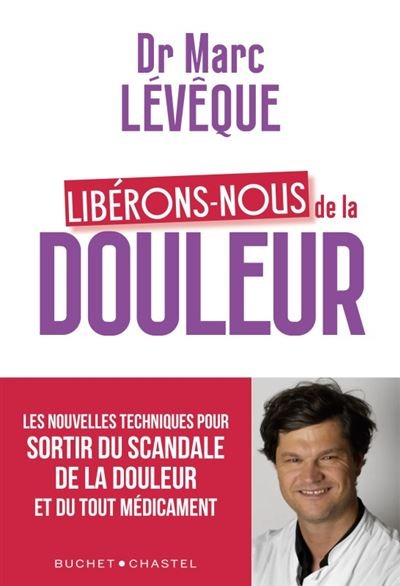Posted ,
Reading 2 mins.
in collaboration with
Dr. Marc Lévêque (Neurosurgery – Pain)
Neurosurgeon and pain specialist, Marc Lévêque publishes a book entitled “Let’s free ourselves from pain – New techniques to get out of the scandal of pain and all-medication”. Through his work, he puts on the table a health subject that affects one in five French people: pain.
Pain is a very frequent reason for consultation. How is it a real medical and social scourge?
Marc Leveque: Pain concerns 12 to 14 million patients in France, who are most often women and the elderly. The pathologies that cause chronic pain are rather feminine. These include, among others, endometriosis, fibromyalgia or migraines. In pain centers, women represent approximately two-thirds of patients, although there are no biological explanations. Pain is, in my opinion, a subject linked to a real problem of information among many French people.
Why haven’t new analgesics been discovered for 30 years?
Marc Leveque: The pharmaceutical industries have the means to discover new molecules. Nevertheless, the question is rather to ask how we have found alternatives to drug treatments. And for 30 years, it’s technology that has been advancing very quickly and evolving exponentially. Advances are much more marked at the technological level compared to chemistry. The problem with drugs is that they have undesirable effects on concentration, psyche, libido or even weight gain. They irrigate throughout the body and diffuse throughout the blood network, whereas focal therapy techniques act only on pain.
How effective are non-drug therapies? What about neuromodulation?
Marc Leveque: The effectiveness of non-drug therapies such as neuromodulation is proven and validated. In focal action, the results are very good.
Relaxation, music therapy, cognitive and behavioral therapies or adapted physical activity are all therapies that have a broader effect on patients. They target their central control so that the person can better defend themselves against pain.
However, non-drug therapies still have too many limitations in terms of their accessibility. Unlike drugs, which are easy to prescribe and quick to take due to the size of the pharmaceutical network deployed in France, technologies require a nearby equipped centre. In addition, chronic pain centers are overwhelmed and only 3% of people who have pain are taken care of. This is a subject that really deserves the attention of politicians, who could partly solve this problem of accessibility to non-drug therapies.
Why so much mistrust of morphine in France?
Marc Leveque: Morphine is a health drama in the United States. It represents a real public health concern because of the risk of addiction. Overdose may cause apnea and pauses in breathing. Taking morphine has its place in acute and non-cancer pain, but it remains highly debated in chronic pain.
Consult a GP online
Should we fear an opioid crisis in France?
Marc Leveque: There is a fairly clear trend towards prescription of opioids in France, but the situation is not comparable to the health disaster currently taking place in the United States. However, the prescription must be supervised and controlled, because in a few years, the number of deaths by overdose has multiplied by three.
Dr. Marc Lévêque is a neurosurgeon and pain specialist in Marseille. Trained in France, Belgium and Canada, he is the author of specialized or general public works in the field of psychosurgery and pain surgery. He is a member of the Doctissimo expert committee.

